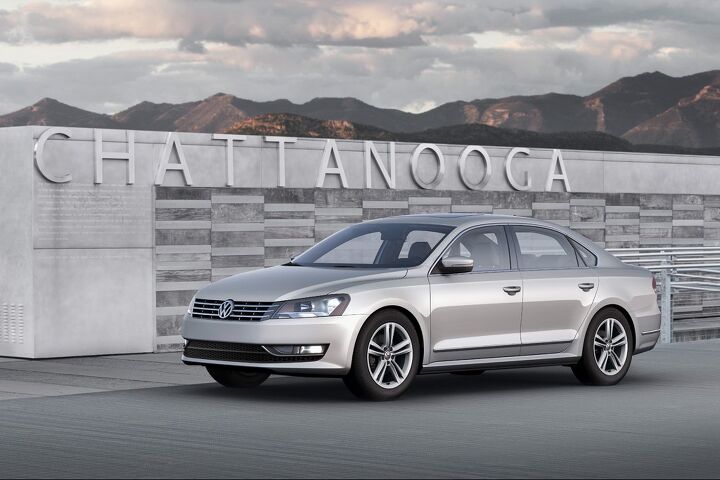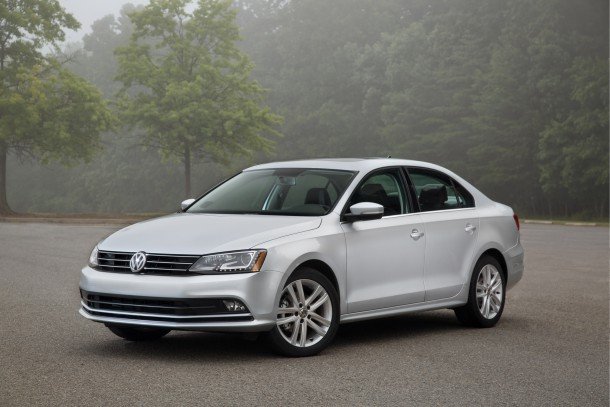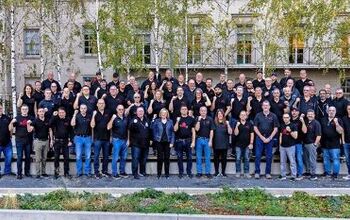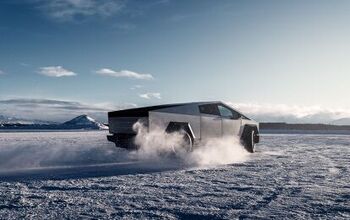Volkswagen Of America Was In Very Rough Shape Before The Emissions Scandal
The year was 2012, and everything was going according to plan at Volkswagen of America.
After years of languishing as an also-ran in the midsize car category, U.S. sales of the Volkswagen Passat rose to their highest level ever. After generating just 8 percent of VW USA’s volume between 2008 and 2011, the Passat was responsible for more than one quarter of Volkswagen’s volume in 2012.
Indeed, the Passat wasn’t the only product capable of capturing greater attention in 2012. Golf volume rose 18-percent year-over-year. A new version of the new Beetle achieved a quadrupling of U.S. sales. Tiguan volume was up 22 percent to its highest total ever. Touareg sales increased to a seven-year high. And the Jetta, while posting a modest decline after its hot-selling launch year, was still Volkswagen’s highest-volume product, generating nearly four out of every ten VW sales. The Jetta’s 170,000-unit total, down 4-percent year-over-year, was 75-percent higher than the total achieved by the nameplate just four years earlier.
Brand-wide volume in 2012 improved to the highest level since 1973, when Type 1 Beetles filled the driveways of America.
On a monthly basis, a streak of year-over-year improvements which began in September 2010 stretched all the way through the first quarter of 2013: 31 consecutive months of growth. The Volkswagen brand’s market share more than doubled from 1.4 percent in pre-recession 2007 to 3.0 percent in 2012. As total U.S. new vehicle sales increased 39 percent between disastrous 2009 and let’s-get-excited 2012, Volkswagen brand sales more than doubled. A 104-percent increase over the course of three years equalled 224,000 extra annual sales.
And then the rate of improvement slowed. 2012’s massive 35-percent year-over-year leap forward appeared very distant in the rearview mirror when first-quarter sales in 2013 grew by just 4 percent. Then the steady increases turned into a handful of modest declines, which quickly became sharp declines, which turned into a long streak of serious declines. By September 2014, monthly Volkswagen sales had fallen on a year-over-year basis in 18 consecutive months.
The trend line reversed for a number of reasons. 2013’s 7-percent drop — as U.S. new vehicle volume grew 8 percent — occurred as virtually every nameplate in the lineup sold less often than the year before: Golf, GTI, Jetta sedan, Jetta SportWagen, Beetle Coupe, Eos, Passat, CC, Tiguan, and Touareg. Meanwhile, although the Routan had always been a low-volume product, its disappearance dug an 8,374-unit-sized hole compared with 2012.
Volkswagen of America was tasked with selling an old Golf during a period in which Europe was thoroughly acquainted with a new Golf. Consumers who were excited about the idea of less costly Jettas and Passats weren’t as thick on the ground as 2012’s demand had led us to believe. As consumers began to veer away from conventional sedans and into crossovers, the People’s Car brand was marketing a two-row luxury SUV and an all-too-compact small crossover that was rather overpriced itself.
Monthly improvements at the end of 2014 weren’t bright lights in a dark tunnel. Compared with 2013’s disastrous lows in the fourth-quarter, yes, 2014’s Q4 was better. Yet compared with the fourth-quarter of 2012, VW USA sales in the final three months of 2014 were down 16 percent. By the end of the calendar year, Volkswagen posted a 10 percent, 40,734-unit decline compared with 2013. As auto sales roared with a 6-percent year-over-year increase to the highest total new vehicle sales output since 2006, Volkswagen’s market share slid back down to 2.2 percent.
The new Golf certainly provided a big boost in 2015’s first eight months. Non-wagon Golf volume shot up 94-percent through the end of August. But sales of Volkswagen’s best-selling model, the Jetta sedan, continued their ebb. In a midsize category that’s down less than 4 percent in 2015, Passat sales tumbled 16 percent. The brand’s small lineup of aged and overpriced utility vehicles managed to increase volume during the first eight months of 2015, but the 9-percent rate of year-over-year growth to 23,925 total Tiguan/Touareg sales was significantly slower than the 12-percent rate of growth in the overall SUV/crossover sector. Moreover, Volkswagen’s 0.6-percent share of the U.S. SUV/crossover sector is well below the brand’s admittedly lackluster performance among passenger cars.
Following 2012’s elation, all of these disappointments came before we learned that the 2.0-liter diesel engine fitted to more than one-in-five Volkswagen of America products is a scandal-ridden, emissions-test-cheating, NOx-spewing anchor around VW’s neck.
Timothy Cain is the founder of GoodCarBadCar.net, which obsesses over the free and frequent publication of U.S. and Canadian auto sales figures. Follow on Twitter @goodcarbadcar and on Facebook.
More by Timothy Cain
Latest Car Reviews
Read moreLatest Product Reviews
Read moreRecent Comments
- Jeff Corey, Thanks again for this series on the Eldorado.
- AZFelix If I ever buy a GM product, this will be the one.
- IBx1 Everyone in the working class (if you’re not in the obscenely wealthy capital class and you perform work for money you’re working class) should unionize.
- Jrhurren Legend
- Ltcmgm78 Imagine the feeling of fulfillment he must have when he looks upon all the improvements to the Corvette over time!




































Comments
Join the conversation
I was just thinking, I dunno where all those 2012+ Touaregs are, as I so rarely see them in the wild. It's been probably two months since I have seen a Touareg at all.
The whole VW diesel schlomozzle leaves me with truly ambivalent feelings. I closed on a 2016 Touareg TDI on Saturday morning about 12 hours after the initial reports emerged. This was after my 2015 Touareg TDI with 850 miles on it was totaled when rear ended while stopped in a highway jam by a mouth breather who was texting instead of driving. The turbo 3.0 liter V-6 TDI has, so far, not been implicated and it has the AdBlue SCR system. Diesel technology still makes a lot of sense when it comes to climate change, fuel density, safety (lower flash point), range and durability. That said, all VW diesels and diesels in general will now be tarred with the same brush and, as someone over on the Club TDI forum pointed out, VW has done more damage to diesels in a few days than GM did with its crappy Oldsmobile diesels in the late '70's. I plan to keep the Touareg for 10 years, so I'm not too concerned about resale value but there's no new car skip in my step. One thing's for sure, if you're in the market for a gasser VW (I'll take a Golf R with a stick, please) VW of America will likely be shoveling money at the dealers during the next 12-24 months just to keep them on board.